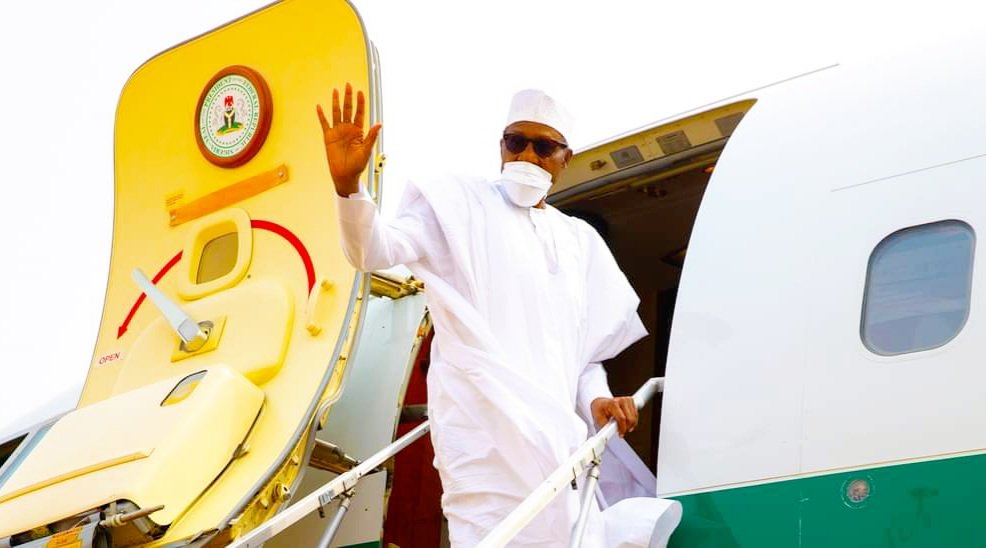Business & Economy
Unremitted Funds: How Buhari’s Appointees Sabotage Economy, Worsen Borrowings
TUNDE AJAJA examines how the refusal of Ministries, Departments and Agencies to remit into the Treasury Single Account the revenues they generate makes a mockery of this regime’s fight against corruption. The President, Major General Muhammadu Buhari (retd.), alluded to an obvious fact recently when he said the 2022 budget estimate would be the last full budget he would implement. His eight years tenure has about 19 months left.
He spoke at the National Assembly while presenting the budget.
Clearly, the President inherited many lamentable budgeting traditions; from wasteful projections to yearly repetition of items, unrealistic aspirations and incredibly low revenue, necessitating unabashed borrowing and pushing the country’s debt service to revenue ratio to about 73 per cent. Many experts have agreed this is disturbing.
One of the unfavourable traditions the Buhari regime inherited – and might avoidably pass on to its successor – is the mocking manner Ministries, Departments and Agencies of government refuse to remit to the federation account the revenues they collect on behalf of the government.
In fact, the Director, Treasury Single Account, Sylva Abor, said in 2019 that some MDAs still operated illegal accounts outside the TSA. He noted that few MDAs were given exemptions on certain grounds, but many others were flouting the TSA policy.
The National Assembly has warned MDAs to desist from the practice, but the menace, perpetrated brazenly by some MDAs, especially those headed by those considered as ‘powerful’, has yet to abate. Some analysts would term it economic sabotage while some believe it is criminal. These views are understandable, given how it causes a significant shortfall in revenue.
Already, the 2022 budget estimate has over N6.2tn deficit that would have to be borrowed. In previous years, government also borrowed to fund the budget. In the current financial year, about N4.28tn, representing about one-third of the N13.6tn budget, was sourced through debt financing. Yet, the MDAs still hold on to considerably huge revenue.
The country’s debt profile has become worrisome and there is a need to borrow. The Minister of Finance, Zainab Ahmed, highlighted this while giving the breakdown of the budget estimate.
Some persons would argue this could have been mitigated and the debt profile may not have reached over N35tn if the MDAs were remitting what they got.
In May, the Senate said between 2014 and 2020, calculations from the Fiscal Responsibility Commission showed that about 60 MDAs refused to remit about N3tn to the Consolidated Revenue Fund, contrary to the Constitution and the Fiscal Responsibility Act 2007.
Similarly, the Executive Chairman, FRC, Victor Murako, said in May that 32 MDAs, including the Federal Radio Corporation of Nigeria; Bank of Industry; Nigeria Immigration Service and National Drug Law Enforcement Agency refused to remit N1.2tn.
He noted, “Sadly, many MDAs still persist in defaulting and practically keeping money away from the Federal Government’s reach for funding its budgets.”
Earlier in March, the Office of the Auditor-General of the Federation in its 2016 Audit report alleged that the Nigerian National Petroleum Corporation did not remit N4.076tn into the Federation Account from operational proceeds made between 2010 and 2016, a report the NNPC denied, saying the money went into pipeline repairs, domestic fuel supplies and security and management matters.
There were several frightening revelations in the 59 recommendations contained in the report of the Senate Committee on Public Accounts on the annual report of the AuGF on the accounts of the federation for the year ended December 31, 2015.
The extent of corruption and leakages in the system was disquieting, given how billions of government funds end up in private pockets, unchallenged.
The President of the African Development Bank, Dr Akinwumi Adesina, said on Monday at the opening of a two-day mid-term ministerial performance review retreat that “Nigeria’s challenge is revenue concentration.”
Sadly, one could safely conclude that Nigeria is wasteful, accustomed to spending its scarce resources as if there is no future to be concerned about.
It loses revenues in known ways and moves on as if it has excess and its ‘barn’ overflows nonstop.
Otherwise, it could be difficult to explain how the leadership or managers of the economy close their eyes to glaring leakages that shrink government’s revenue – and line the pockets of corrupt individuals, but would rather unashamedly go cap in hand to borrow from disciplined nations and organisations.
Realising the impact of unremitted funds on the current fiscal challenges, the President a few days ago gave his approval that a coalition of anti-graft agencies, which include the Economic and Financial Crimes Commission, the Independent Corrupt Practices and other Related Offences Commission, Nigeria Extractive Industries Transparency Initiative and the Nigerian Financial Intelligence Unit should recover about N2.65tn unremitted funds by 77 oil companies.
If the President could ‘dispatch’ four major anti-graft agencies to go after oil companies to recover unremitted funds, many people would wonder why he has yet to make examples – including sacking and prosecution – of his appointees who defy extant policies by holding on to government revenue.
Politicians are powerful, especially those in any ruling party, and this corrupt act by MDAs didn’t start with the Buhari regime.
But it becomes worrisome that such persistent abuse of office would continue under the President, who promised to fight corruption to a standstill. The MDAs, some of which shun invitations by the National Assembly, seem to be untouchable.
“Fighting corruption is extremely difficult. It’s so difficult, but I will keep on trying,” Buhari said recently in Owerri during his meeting with key stakeholders while on a visit to Imo State.
But, according to a seasoned economist and former Director-General, Lagos Chamber of Commerce and Industry, Dr Muda Yusuf, what is lacking is the political will to compel the MDAs to do the right thing. He said most of the MDAs that are culpable are usually headed by influential persons who could hardly be controlled.
Yusuf, who is also the founder/CEO, Centre for the Promotion of Private Enterprise, said, “It boils down largely to the political will to compel them to remit what they are supposed to remit. Many of them are richer than the ministries that supervise them, and they live large correspondingly.



